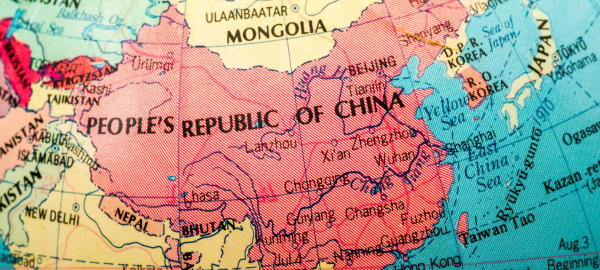[Editor’s Note: Ardent Partners recently published its Procurement-themed report, “Procurement 2024: BIG Trends and Predictions.” Over the next few weeks, this site will feature articles highlighting the key discussion points from the report.
Chief Procurement Officers and their teams head into 2024 with a continued lack of clarity and a need for caution. While a recession was avoided last year and inflation slowed its pace in most regions, economic and overall market uncertainty remains. In addition, geopolitical unrest in the Middle East and climate conditions in Central America are causing big delays and increased costs in global shipping, forcing many procurement teams to seek alternative sources of supply. While the details fluctuate year to year, procurement’s headline remains the same. In 2024, CPOs face a series of new challenges that must be managed while operating with high uncertainty … AND great opportunities exist for the teams who are best prepared for them.
Over the next few weeks, we’ll feature the BIG trends in procurement followed by equally BIG predictions for 2024 that will help CPOs and procurement professionals understand the key issues at hand and better prepare them for the year ahead.
Prediction #8 – More Companies Will Move Supply Out of China
The challenges facing CPOs today are numerous and significant; for many, those challenges start and end with their supply chain. The global pandemic exposed vulnerabilities in many supply chains, highlighting the need for greater resilience and agility. The well-documented supply chain disruptions that arose during the pandemic led to shortages of critical materials, delayed shipments, and increased costs, causing a substantial financial impact on businesses in all industries and geographies. The hangover from the pandemic has lingered, but now, businesses are starting to respond by reevaluating their supply chains.
Ardent Partners predicts that in 2024, a large number of CPOs will undertake a strategic reassessment of their current supply chains that are designed to make them less risky, more resilient, and broadly sustainable. The result of these CPO-led projects will be an inevitable (and quite large) exodus of supply away from China. There have already been several high-profile instances of world-class corporations moving supply out of China and into new regions, such as Apple’s recent entry into India.
Many factors will contribute to this larger macro-level shift, with East-West geopolitical/trade tensions foremost among them. The continued development and growth of the countries in the Eurasian belt just west of China is another factor. Cost and security concerns will also lead some groups to nearshore and re-shore some supply. When supply chain shifts are recommended, procurement will need to work with finance and business stakeholders to achieve a balance between the short-term switching costs and the long-term benefits from the transition.
Prediction #9 – China Will Ease Its Trade Policies
As China’s economic growth continues to decelerate throughout 2024, Xi Jinping and other political leaders will face mounting pressure to sustain employment levels and maintain stability. Meanwhile, Western companies are likely to intensify efforts to shift production and sourcing away from China, seeking to mitigate risks associated with overreliance on a single country. The resulting loss of investment and jobs presents a clear economic risk that Beijing cannot afford to ignore. The prospect of a diminished role in global supply chains would undermine China’s long-term economic prospects and international influence, prompting policymakers to reassess their stance on trade relations with the West. As the economic impact of the supply shift on China grows, Chinese leaders may even be forced to address key concerns raised by Western nations, such as intellectual property rights protection, market access, and fair labor and trade practices. Any initial shift in policies (and overall tone) by Chinese leadership will be small but may be a positive step toward reestablishing a stable and predictable foundation for global trade that is beneficial to China and the West.
Prediction #10 – Supply Chain Disruptions Will Persist
Supply chain disruptions have become an increasingly prevalent concern. It should come as no surprise that Ardent Partners predicts these challenges will continue apace in 2024, driven by three “Ws” — weather, war, and western diversification. Weather extremes, exacerbated by climate change, will persist in disrupting transportation routes, damaging infrastructure, and affecting production capabilities —the drought impacting the Panama Canal is a perfect example. Meanwhile, wars in the Middle East and Eastern Europe continue to pose ongoing risks to supply chain stability; the Red Sea attacks impacting the Suez Canal is another striking example. Finally, the diversification away from a reliance on Chinese manufacturing (see Prediction #8) will also create issues. While diversification may enhance resilience in the long term, the transitional phase may be fraught with challenges, including sourcing disruptions, capacity constraints, and logistical complexities.
Prediction #11 – Smart Sourcing Will Save the Day in 2024
In 2024, smart sourcing will be critical to procurement’s performance in the face of reduced (but still real) inflationary pressures, supply chain disruptions, and suppliers’ general drive to increase margins. Smart sourcing involves leveraging data-driven insights, market intelligence, and strategic supplier relationships to optimize procurement decisions. It also involves eSourcing technology.
By analyzing historical spend and market trends, procurement teams can identify cost-saving opportunities, negotiate favorable pricing agreements, and proactively address supplier price increases. To combat higher prices, procurement teams will also spend more time exploring alternative sourcing options that can reduce the business’ exposure to price volatility while meeting acceptable quality and risk levels.

